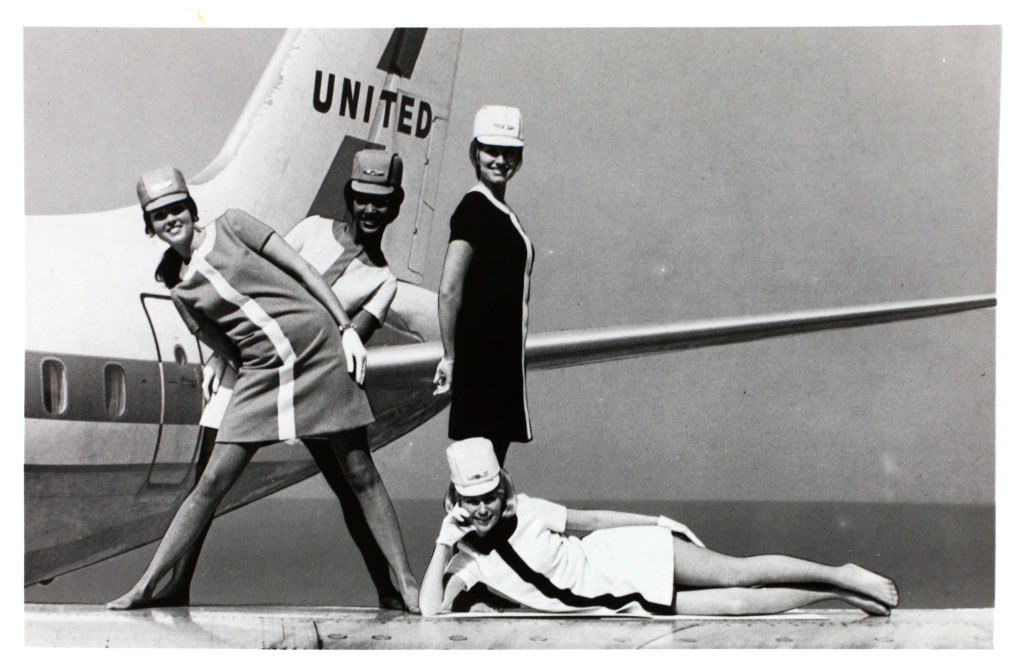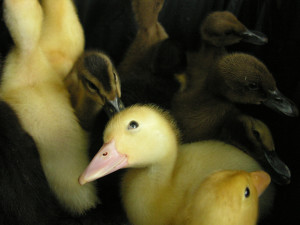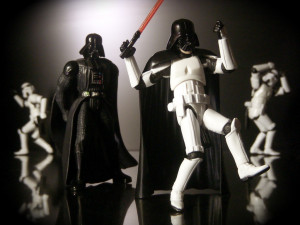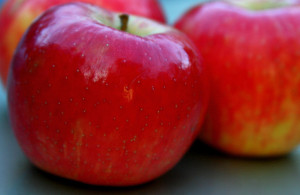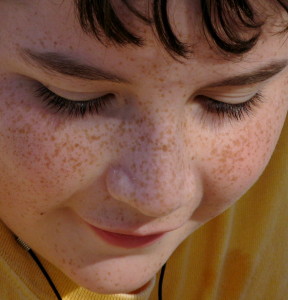Seventy-five years ago today, LaGuardia opened for business, and say what you will about that particular airport, its anniversary got us thinking about airport lingo.
While you may have already heard of blue juice, landing lips, and Sharon Stone jumpseat, here are 10 more air travel phrases and some surprising origins.
apron
“The airport doesn’t completely have all of the funding needed to pay for the project, which also includes a bit of paving, specifically in an area where planes are parked — the apron.”
Josh Bergeron, “Extended runway still far off, but hangars inching closer for airport,” Salisbury Post, November 7, 2014
In airport lingo, the apron is what most of us think of as the tarmac: “the paved strip in front of and around airport hangars and terminal buildings” where airplanes park. According to the Oxford English Dictionary, this meaning of apron came about around 1925, perhaps playing off the nautical sense of “a platform, as of planking, at the entrance to a dock.”
The word apron, says the Online Etymology Dictionary, is a mid-15th century “faulty separation” of the word napron. Napron, a 14th-century term, comes from the Old French naperon, “small table-cloth,” which ultimately comes from the Latin mappa, “napkin.”
deadhead
“Deadheading refers to crewmembers, including flight attendants and pilots, who are being repositioned as part of their assigned trip. That is, they’re flying as passengers while on duty.”
Meryl Getline, “Ask the Captain,” USA Today, May 1, 2006
It’s unclear when or how this term originated. Deadhead may be related to an earlier meaning, “a person who uses a free ticket for admittance, accommodation, or entertainment,” and also refers to “a vehicle, such as an aircraft, that transports no passengers or freight during a trip,” and “to make a trip without passengers or freight.”
Famed confidence trickster Frank Abagnale deadheaded on over 250 flights by impersonating a pilot.
dwell time
“For the airports, that means passengers will have more ‘dwell time’ – the industry term for the amount of time available that can be spent shopping and dining before a flight departs.”
Jamie Freed, “Airports looking to cash in on our ‘dwell’ time,” The Age, November 25, 2014
Dwell time refers to, in general, the amount of time something or someone remains in a given state, but has different implications depending on the industry.
In the military, dwell time means “the duty time soldiers have at their domestic home base between foreign deployments”; in the airline industry, the time between check-in and departure; and in marketing, how much of that time might spent looking at ads and spending money.
Since the 9/11 attacks and increased security measures, dwell time at airports has increased. In the late 1990s, “expected passenger dwell time” was about 50 minutes while in 2007, average dwell time at New York’s JFK airport was 127 minutes.
hidden city ticketing
“Hidden city ticketing isn’t illegal, but the airlines hate this practice. Long ago they acted to prevent it by canceling the remainder of your ticket if you missed any legs, with no compensation to you.”
Mark Murphy, “What airlines don’t want you to know about hidden city ticketing,” Fox News, November 24, 2014
Hidden city ticketing works like this: say you want to fly from City A to City B but it’s incredibly expensive. You find a cheaper ticket from City A to City C with a connecting flight in City B. You get off the plane at City B — and don’t get back on.
Recently United Airlines and Orbitz sued the travel website Skiplagged.com for helping “travelers buy what the companies call improper ‘hidden city’ plane tickets that undercut their sales.” However, hidden city ticketing has existed long before such sites, as this 1986 LA Times article states: “Hidden city ticket writing is a longstanding travel practice, and as airlines have aggressively promoted their hub cities, using a hidden city ticket has become easier.”
layover
“Nobody likes a long airport layover, but for travelers who find themselves with lots of time on their hands at Reagan National Airport, Metro makes it possible to do a little sightseeing.”
Jeff Clabaugh, “Reagan National ranked a top airport for long layovers,” Washington Business Journal, October 30, 2014
While we might think of the layover as primarily having to do with airline travel, it actually refers to any brief stop in a journey. The OED’s earliest citation is from 1873, and the first with the airline travel sense from 1969: “We have an airline ticket for this evening..with a change at New York. A four-hour lay-over there, I’m afraid.”
open jaw
“Additionally, ‘open jaw,’ or reservations that leave from one city, and return to another, were possible, so long as the final leg was less than the first leg. Now, you’ll be facing Delta pricing for one-way fares, instead of one complete reservation.”
Mark Jackson, “United and Delta devalue travel for passengers,” The Christian Science Monitor, November 25, 2014
An open-jaw ticket is basically a multi-leg trip in which the origin and destination cities differ. The path lines of the flights resemble an open jaw, and according to the OED, the term has been around since at least 1942.
red-eye
“They’ve gone home weekend after weekend on the red-eye special to stand up for the administration.”
Lawrence F. O’Brien, “Back LBJ in Viet,” The Miami News, August 8, 1966
A red-eye refers to an overnight flight, so-called, says the Online Etymology Dictionary, “from the red eyes of sleeplessness.” The OED says the earliest mention is 1964 in The New York Times: “During the long California campaign, Mr. Goldwater has many times flown the same night flight to Washington. He calls it the ‘red-eye special’.”
Earlier meanings of red-eye include a cheap whiskey (1819), military slang for ketchup (1923), and a drink of beer and tomato juice (1960). Red-eye gravy is a 1931 southern U.S. term referring to “gravy made by adding liquid (esp. coffee) to the drippings from cooked ham or other cured meat.”
slam-click
“Every true airline pilot knows that a ‘slam-click’ is a flight attendant that declines to take in the town with the pilots and other flight attendants while on a scheduled overnight stay somewhere.”
Terry Maxon, “Pilot imposter caught on US Airways plane,” Dallas News, March 22, 2013
Although the phrase is probably older, the earliest citation we could find is from a 1982 Land’s End ad: “The pilots taunt me: ‘Slam-clicker’ is a crew member who goes straight to his or her room and doesn’t come out…That’s me tonight.”
Slam-click is imitative: slam is the shutting of a door and click, the sound of the lock.
tarmac
“Think you have travel woes this Thanksgiving? At least you don’t have to push your own plane down a frozen tarmac in negative 61 degree temps like these travelers in Siberia did.”
Leslie Horn, “Passengers in Siberia Had to Push a Plane Down the Tarmac to Take Off,” Gizmodo, November 26, 2014
While the word tarmac is often used colloquially to mean the airport runway, its original meaning is “a tarmacadam road or surface,” where tarmacadam is a combination of tar and macadam, “pavement made of layers of compacted broken stone, now usually bound with tar or asphalt.” Macadam was a trademark named for John Loudon McAdam, a Scottish civil engineer and its inventor.
Some pilots take umbrage with the airport runway being called the tarmac as much airport pavement is made not of tarmac but of concrete.
Finally, check out James Harbeck’s lovely walk down tarmac lane.
trolley dolly
“My father was a great vocalist, he sang with a gospel choir but I wanted to be a trolley dolly. I want to travel the world for free.”
Jeremy Williams-Chalmers, “‘I wanted to be a trolley dolly’: So So Gay talks to Gwen Dickey,” So So Gay, June 21, 2014
Trolley dolly is a British and Australian term for a female flight attendant. An example of reduplication, the phrase comes from the food and drink trolley, or cart in American English, that flight attendants push around. The OED’s earliest citation is from 1951: “They used to call us trolley dollies.”
[Photo: “,” CC BY 2.0 by KurtClark]
